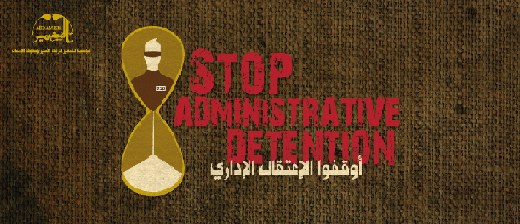Tag: Hunger strike
-
Hunger strike by human rights defender Ms Shireen Essawi as trial postponed by one year
17th May 2014 | Front Line Defenders | Occupied Palestine On 8 May 2014 human rights defender and lawyer Ms Shireen Essawi began a hunger strike after learning of the postponement of her trial for nine months and a day. She is charged with cooperating with actors who are working against the state of Israel. Shireen Essawi…
-
Hunger strike solidarity tent in Nablus
16th May 2014 | International Solidarity Movement, Nablus Team | Nablus, Occupied Palestine Erected in the duar (city center) in the northern Palestinian city of Nablus, is a large tent utilized throughout the day by those in solidarity with the exceeding-one-hundred Palestinian administrative detainees. “We will stay here as long as it takes” says Yousef, a Lawyer and…
-
Update on Hunger Strikes: Administrative Detainees put in Solitary Confinement, Denied Salt Supplements
7th May 2014 | Addameer Prisoner Support and Human Rights Association | Ramallah, Occupied Palestine The latest wave of mass hunger strikes continue for the 14th day as Palestinian prisoners demand the end of the policy of administrative detention. Administrative detention is a procedure in which Palestinians are arbitrarily arrested and detained without charge or trial based…



